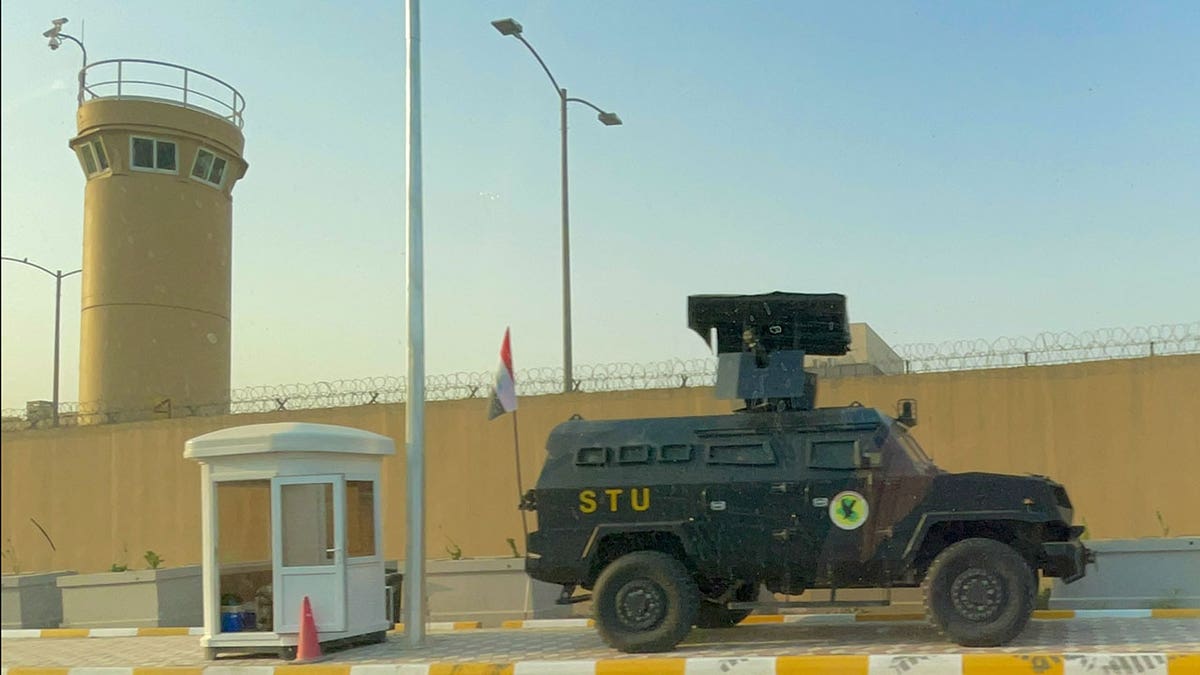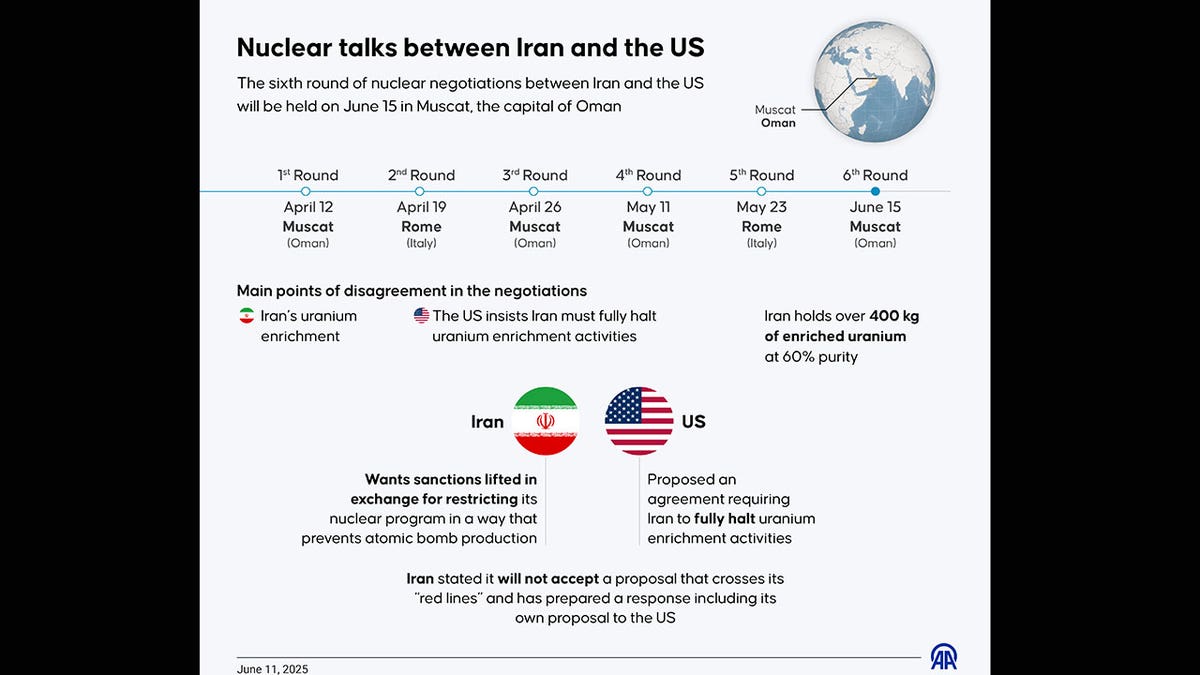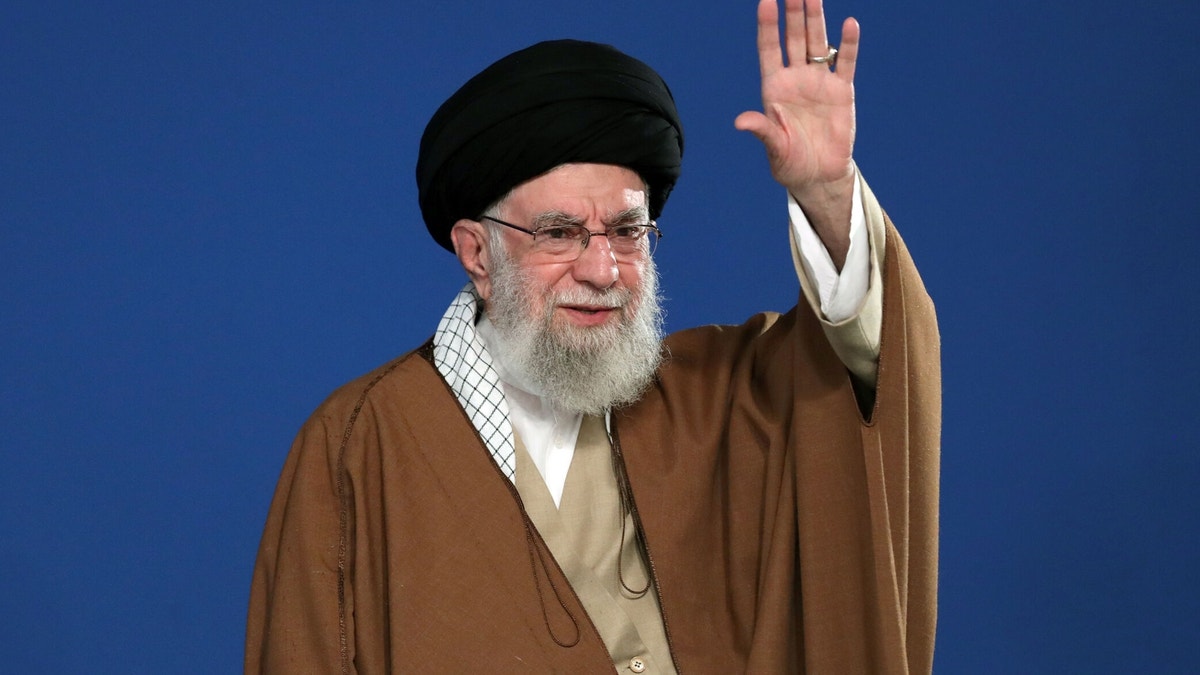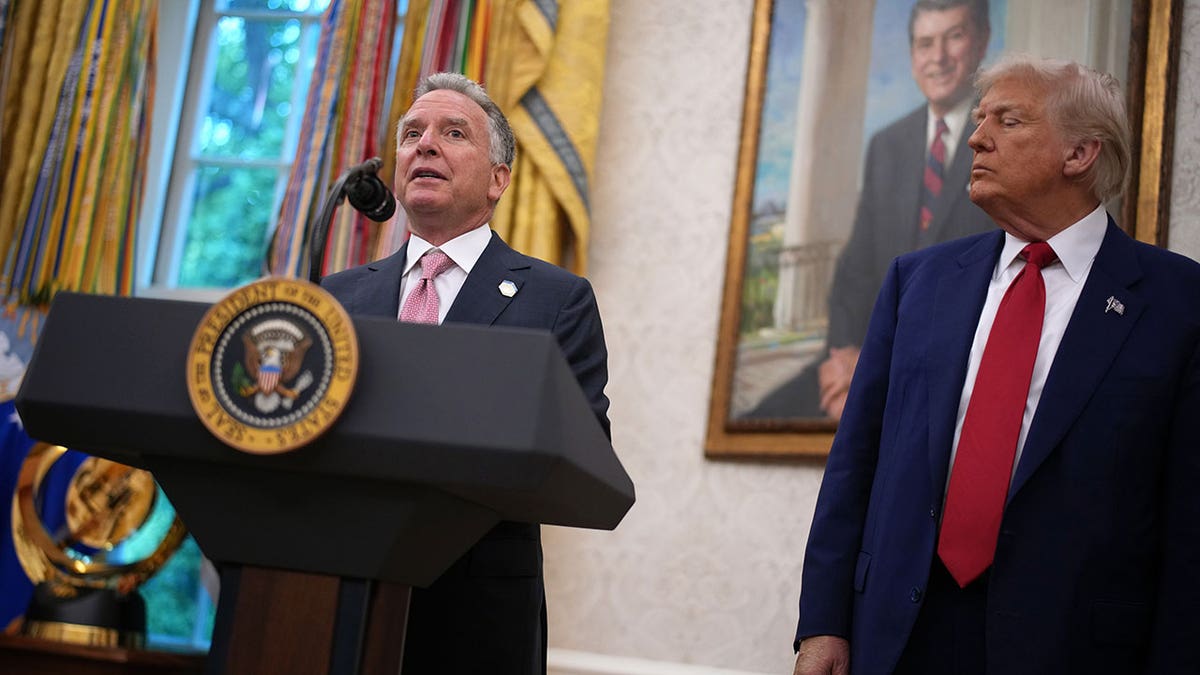Trump warns Israel strike on Iran ‘could happen’ amid Middle East evacuation, nuclear negotiations
NEWYou can now listen to Fox News articles!
President Donald Trump on Thursday wouldn’t say an attack by Israel on Iran was imminent, but warned it “could happen” as the U.S. continues to pressure Tehran on a nuclear deal, but simultaneously prepares evacuations from the Middle East.
“I don’t want to say imminent, but it looks like it’s something that could very well happen,” Trump said. “Look, it’s very simple, not complicated. Iran can not have a nuclear weapon.
“Other than that, I want them to be successful,” he continued. “We’ll help them be successful, will trade with them. We’ll do whatever is necessary.”
Trump said ultimatelyhe’d “love to avoid the conflict,” but said that Iran is going to have to negotiate a “little bit tougher.”
“Meaning they’re going to have to give us some things that they’re not willing to give us right now,” he said in apparent reference to Iran’s so far refusal to give up nuclear enrichment capabilities.
Trump on Wednesday told reporters that the U.S. has advised some evacuation efforts in the Middle East as the security situation with Tehran could become “dangerous” amid uncertain nuclear negotiations.
“They are being moved out because it could be a dangerous place,” Trump said. “We’ve given notice to move out, and we’ll see what happens.”
The president’s comments came after the U.S. embassy in Iraq ordered a partial evacuation of non-emergency government personnel and military dependents have been authorized to leave locations around the Middle East.

Reports originally claimed similar orders had been issued in Bahrain and Kuwait, though no notices have been posted to the U.S. embassy in Kuwait, and the embassy in Bahrain said that reports that it “has changed its posture in any way are false” and staffing operations remain “unchanged and activities continue as normal.”
Embassies near Iran have been ordered to hold emergency action committees and report back to DC on their risk-mitigation plans.
No U.S. troops have been pulled from the Middle East at this time.
The State Department did not immediately respond to Fox News Digital’s questions on why Iraq was deemed particularly dangerous when similar notices have not been issued in other nations surrounding Iran.
When asked how the U.S. can calm the escalating security situation in the region, Trump did not provide a direct answer, but said, “They can’t have a nuclear weapon. Very simply, they can’t have a nuclear weapon. We’re not going to allow that.”
The status of negotiation progress remains unclear as Special Envoy Steve Witkoff prepares to head to Oman on Sunday for the sixth round of direct and indirect nuclear negotiations with Iran, Omani Foreign Minister Badr al-Busaidi confirmed on Thursday.

IRAN BECOMING ‘MUCH MORE AGGRESSIVE’ IN NUCLEAR TALKS, TRUMP TELLS FOX NEWS
The negotiations have become increasingly strained in recent weeks and appear to have reached an impasse over the levels of enriched uranium.
The U.S. has repeatedly said Iran must not be allowed to have any enrichment programs, including for civil energy use – of which Iran contributes less than 1% of its overall energy needs to nuclear energy.
Iran has thus far flatly refused to abandon all nuclear enrichment, and it remains unclear what it would be required to do with the stockpiles of near-weapons-grade enriched uranium that it currently possesses – which it drastically increased over a three-month period earlier this year.
The IAEA began sounding the alarm last month that Iran had increased its stockpiles by nearly 35% between February and May, when the nuclear watchdog said its stores had jumped from roughly 605.8 pounds worth of uranium enriched to 60% to 900.8 pounds by mid-May.

The Institute for Science and International Security assessed earlier this week that Iran could further the enrichment process to create at least one nuclear warhead’s worth of weapons-grade uranium in as little as two to three days at its Fordow Fuel Enrichment Plant (FFEP).
Nine nuclear weapons could be made within three weeks, and in coordination with Natanz Fuel Enrichment Plant (FEP), Iran could turn around 22 nuclear warheads within a five-month period, the Institute for Science and International Security claimed.

TRUMP REJECTS IRAN’S COUNTER-PROPOSAL IN NUCLEAR NEGOTIATIONS: ‘IT’S JUST NOT ACCEPTABLE’
The IAEA’s 35-nation Board of Governors on Thursday declared Iran is in breach of its non-proliferation obligations for the first time in nearly 20 years.
The board may next take the breach to the UN Security Council, which could then be prompted to enforce severe snapback sanctions on Tehran, which Western security experts have long been urging the UNSC to pursue.
Only three nations on the board objected to the breach declaration, including Russia, China and Burkina Faso, despite years of mounting evidence of man-made highly enriched uranium, and Tehran’s refusal to grant the IAEA full access to all its nuclear facilities, which is a violation of the Joint Comprehensive Plan of Action (JCPAO).
Tehran is still bound to the international deal, though the agreement drastically unraveled after the U.S. withdrew from the agreement in 2018 under the first Trump administration after it claimed Iran was already in breach of the terms.
CLICK HERE TO GET THE FOX NEWS APP
Defense Secretary Pete Hegseth, who returned to the Hill today to testify in front of the House Armed Services Committee, told Senators on Wednesday that “There are plenty of indications that [Iran has] been moving their way towards something that would look a lot like a nuclear weapon.”
The secretary’s comments contradict assertions made by the Director of National Intelligence, who said in March that Iran is not building a nuclear weapon.
